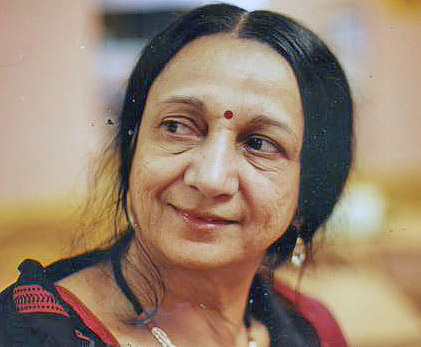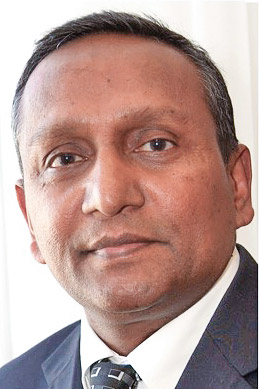Community Connection

This Festival of Indian Dance starts Tuesday March 28 and runs to Sunday April 2, 2017 at Fleck Dance Theatre, Harbourfront Centre. Tickets will be on sale mid-February. All events on stage at Harbourfront Centre will also be live streamed and performances will be available at select film theatres such as Cineplex during the Festival and available on-line over the internet as well.
Performances: The live and live-streamed Festival will present over 40 dancers from Canada and India and feature the classical and contemporary dance styles of Bharatanatyam, Odissi, Kathak, Chhau, and Modern over the course of the six days. Performers include Menaka Thakkar Dance Collective (Toronto), Santosh Nair Sadhya Dance (India), Bhavajan Kumar Dancers (Toronto), and solos by Menaka Thakkar (Toronto), Kasturi Mishra (Ottawa), Sujata Mohapatra (India), Parul Gupta (Toronto), Riya Alika Mittal (Edmonton), Nivedha Ramalingham (Toronto), Monica Shah (Vancouver), Mark Medrano with Roger Sinha (Montreal), Reshmi Chetram (Toronto), and more to be announced.
Retrospective and Symposiums - A "DO NOT MISS" event at the Festival will be a demonstration/symposium on the use of technology for teaching Indian dance on-line, hosted by Menaka Thakkar that takes place on Sunday April 2. This will be followed by a one-hour retrospective film on the history of contemporary Indian Dance through the eyes of past Kalanidhi Festivals. The retrospective will be followed in the afternoon by a Symposium discussion on Contemporary Indian Dance happening in India. FREE ADMISSION to all events.
Late Auntie Doreen hailed from Blairmont No. 2 Settlement, West Bank Berbice, Guyana. She migrated to Canada in 1984 and first lived in Mississauga, Ontario, then in Brampton, Ontario. She was the beloved mother of ten, grandmother of 23, great grandmother of 28 and great great grandmother of three.
Always a caring, jovial, loving and a strong character, our dearly departed “Rock of the Family” will be sadly missed, but her memories shall forever remain in our hearts.
May her departed soul speedily ascend into her heavenly abode in the waiting arms of her predeceased partner, late 'Uncle Bob' and her two sons, Eric and Carl. R.I.P.
Year 2017 marks the 100th anniversary of the official abolition of Indian Indenturedship, an era spanning 1834-1917. Indian Indentureship was an intense and harrowing period of Indian migration from several Indian states to far way lands of then British colonies throughout the world: Pacific, Atlantic and Caribbean regions. The majority of those laborers came from Uttar Pradesh, Bihar, West Bengal, Jharkand, Madhya Pradesh, Tamil Nadu and Pondicherry.
The history and consequences of Indian Indenturedship are deeply embedded with tremendous significance, meaningful history and sometimes painful reflections to millions of descendants living in many countries which were the recipients of Indian Indentured laborers seeking better livelihoods: Mauritius, Fiji, S. Africa, Trinidad, Suriname, Guyana, Belize, Guadeloupe and other countries of the Caribbean; as well as second migration to USA, Canada, UK, Netherlands, France and other countries.
The upcoming New York event is commemorating the centennial of abolition of Indian Indenturedship in the NY-NJ-CT-PA-MA region where a significant population of PIOs and NRIs reside. Over 200,000 PIOs from Guyana, Trinidad, Suriname, Jamaica, South Africa and other countries presently reside in the region are the descendants of Indian Indentured immigrants (1834-1917).
The March 3 program includes remarks by consul generals of India and other countries impacted by Indian indentureship, followed by prominent historians and speakers on: History of Indian Indenturedship; Perspectives on the end of an era; Challenges, Unparalleled Progress and Achievement; Descendants of Indian Indenturedship and the PIOs experience. After audience interactive Q/A, there would be a presentation of music, dance and poetry on Indian migration to be followed by an assortment of foods from the Caribbean and other PIO countries.
Similar commemoration events are being held by Indian Diaspora Council (IDC) and its affiliates in several countries impacted by Indian indentureship during the month of March 2017, including a 2-day conference in New Delhi on April 22-23.
This New York event precedes the Indian Diaspora World Convention 2017, the grand global commemoration on March 17-20, 2017 to be held in Trinidad & Tobago: Grand opening ceremonies, conferences, panel sessions, workshops, resolutions, action items team, future projects, cultural presentations and receptions. Several Indian officials as well as officials, civic and community leaders from neighbouring Caribbean countries would be engaged in discussions on engagements and collaboration.
For more information, please contact Ashook Ramsaran @ ashookramsaran@gmail.com
Indian Diaspora Council (IDC) is an international non-profit organization of shared heritage, aspirations and interests.
Visit http://indiandiasporacouncil.org

By Lal Balkaran
Final of 2 Parts
From Double-Entry Book-keeping to Prosperity
Fra Luca Pacioli introduced Hindu-Arabic numerals and their use in arithmetic to a wide audience in Italy for the first time in 1494. It grew into a sophisticated system of numbers which in the twenty-first century governs the global economy. Take for example their use in equations, considered the lifeblood of mathematics, science, and technology which played a vital part in today’s world: mapmaking, discovering new lands, medical advances, circumnavigating the globe, science, technology, music, television, and space exploration.
Pacioli became a travelling salesman for Hindu-Arabic mathematics and his landmark November 1494 “Summa” became the first printed book to deal with Hindu-Arabic arithmetic, its offshoot algebra and Venetian book-keeping. He explained the rules of addition, subtraction, division, fractions, and roots as well as including mathematical tables and the different ways of multiplying.
The rise and metamorphosis of double-entry book-keeping using Hindu-Arabic numerals forever changed the world of commerce and accounting. These two contributions to the scientific and commercial life of Europe which would eventually spread across the globe made Pacioli’s “Summa” a groundbreaking phenomenon that impacted the entire globe. In particular, they created and measured wealth and enabled capitalism to flourish, thus changing the economies of the world ever since.
Double-entry book-keeping is essentially a system of recording business transactions with corresponding debit and credit entries of equal value. It is based on the premise where every transaction affects and is recorded in two or more accounts with equal debits and credits. The proof is, if every transaction is properly recorded in its proper account, then the sum of the debits and credits in the respective ledger accounts must agree.
Origin of Double-entry in India
Most accounting historians agree that the first surviving accounts kept in double-entry date to around 1300 C.E. primarily due to the expansion of commercial activity, particularly in thirteenth century Florence. Early double-entry accounts in Florence and Venice were kept not with the Hindu-Arabic numerals but in the old, cumbersome, and inoperable Roman numerals. It was only by the end of the fifteenth century, due to Paciolo’s efforts, that the Hindu-Arabic numerals began to appear in accounting records in these trading centres. Pacioli was thrilled when he was first exposed to the numerals which he studied and incorporated in his landmark treatise on double-entry. But he was not the first. Research is now unearthing new information on the true origins of book-keeping in ancient India.
Organized trade and commerce has been a feature of Indian society since time immemorial. It is not surprising to expect the existence of book-keeping employed in money lending, state revenue system and purchase/sale transactions. Kautilya, an important diplomatic and political figure in ancient India, introduced the concepts of political economy in the society through his text “Arthasastra” which provided guidance on many accounting topics including taxes and profit. Although researchers have now claimed that systematic record-keeping is also found in much older civilizations, the first historical documentary evidence of the use of accounting concepts such as income, revenue, expenses, assets, etc. occurred in India around 300 B.C.E. where contemporary accounting-related functions as auditing, budgeting, and financial forecasting were practiced.
Additional evidence now shows that the art and practice of book-keeping and accounting as a highly developed system, was in vogue in India during the times of the Vedas, Sutras, and the Upanishad. Also, research has now unearthed that the Hindustani Bahikhataa Paddhati (India System of Accounting) was a fully developed scientific system of double entry accounting based on naame (debit) and jamaa (credit) which was invented and practiced in ancient India and refined over the years.
Introdution of Double-Entry in Italy
Over time, double-entry book-keeping was eventually introduced to Venice through commerce by the Banias (Hindu and Jain merchants or businessmen) through trade. Banias were the foremost trading and banking community of India who operated a complex and well-integrated credit exchange system that had traditionally serviced the elaborate needs of India’s expanding commerce. It was in Venice where Fra Pacioli was first introduced to the Hindu-Arabic numerals which he used to eventually refine his famous double-entry treatise – from pre-existing practices.
Alexander Hamilton (1762-1824), the noted British linguist and orientalist, was one of the first Europeans to study the Sanskrit language which he taught to most of the earliest European scholars of Indo-European linguistics. First cousin of his namesake, the American statesman, he became the first professor of Sanskrit in Europe. In 1798, Hamilton, writing in a journal in India, said:
“We would remark that the Banias of India have been from time immemorial, in possession of the method of book-keeping by double entry and that Venice was the emporium of Indian commerce at the time at which Friar Luca’s (Pacioli’s) treatise appeared.’’
Therefore, given the above, the ‘father’ of double-entry book-keeping has been widely attributed to Fra Luca Pacioli but he only summarized and synthesized pre-existing practices. His 1494 philosophical and mathematical work of some 1500 pages included a 24-page treatise on double entry book-keeping called “Particularis de computis et scripturis” or “De computis” which is the only significant part of his volume dealing with book-keeping. Translated into fourteen languages and spread across Europe by the power of the printing press, Venetian book-keeping thus became the standard across Europe.
However, it must be noted that Pacioli’s achievements reflect the fusion of several key factors that altered the world forever: printing, the adoption of the Hindu-Arabic numerals which gave rise to mercantile capitalism and the creation of wealth.
Evolution of book-keeping since 1494
Within a decade of the invention of the printing press in the 1450s, news of this earth-shattering invention spread across Europe. Each and every book-keeping item published on the printing presses in Europe from 1500 to 1800 can be traced back to Luca Pacioli’s 1494 work.
Reproducing tables of figures and other mathematical symbols dealt the final blow to the old Roman numerals. It also marked the beginning of the demise of Latin as the universal language of Europe and its gradual replacement by the language of science, whose underpinning was mathematics, enabled by the Hindu-Arabic numerals 0 to 9 which played a pivotal role.
The numerals made possible the triumph of science and the rise of mathematics as the universal language. Simultaneously, it brought about the demise of the Bible and religion as the ultimate and uncontested source of truth.
The practice of double-entry book-keeping in Florence and Venice no doubt made Italy great. People from all over Europe came to Italy to learn the mechanics of double-entry. However, with the decline of Venice as a commercial power in the 16th century, the port of Antwerp (now in Belgium) became the centre of international trade and it was here that book-keeping made its next great advances largely through the efforts of a Dutchman named Jan Ympyn Chritoffels. He was the first Dutch to study the subject and made a translation in 1543 of Italian book-keeping. His work was translated in French and English shortly after and book-keeping spread throughout Europe.
Industrialization
From the mercantile capitalism of Pacioli’s fifteenth century to the increasingly complex industrial capitalism of the nineteenth century, nearly all the demands made for accounting information could be met within a single framework: double-entry. It enabled the recording and interpretation of business transactions; distinguish between capital and income; differentiate private expenses and corporate costs; and produced data for decision-making. It gave rise to other accounting-related subjects: auditing, cost accounting, management accounting, and financial management.
Fittingly, double-entry book-keeping drove the new economic engine of Europe: industrialization which in turn gave rise to joint stock companies and a new profession: accounting – the presentation and interpretation of the results of double-entry book-keeping to assess performance and the financial position at a given date. Industrialization in turn enabled the accounting profession to be formally institutionalized in Britain during and immediately after this revolution in industry resulting in the establishment of professional accounting bodies during the nineteenth century in both the UK and America.
Some of the twentieth century’s biggest accounting firms were established in London, England during the 1800s: William Deloitte opened his practice in 1845; Samuel Price and Edwin Waterhouse in 1849; and William Cooper in 1854.
By 1900 and increasingly thereafter, annual financial statements had become the raison d’etre of book-keeping systems. The role of the auditor was consolidated in the UK in 1900 through the Companies Act which made it compulsory for companies to have annual audits for all registered companies. With the advent of compulsory auditing, accountants became ubiquitous and their professional status rose. Double entry also played a key role in world history and the development of capitalism.
Indeed the world owes much to India for such monumental changes sparked by these numerals 0 to 9 which in turn were used to develop current double-entry book-keeping and ultimately to human progress. Our lives are now intertwined with both financial and non-financial numbers. Can you imagine life today without 0 to 9, and a world with no double-entry to record business transactions? When you look at any financial statement or report, you are essentially looking at the use of the digits 0 to 9 in all their varying forms to measure financial health, growth, and returns.
Humanity’s concept of wealth, its measurements, creation, and distribution could not have been achieved had it not been for these two great inventions: the Hindu-Arabic numerals and double-entry book-keeping.
(Lal Balkaran, MBA, FCPA, FCGA, FCMA, CGMA, CIA is self-taught and an award-winning auditor who has been widely published across the globe with seven reference books on business and another six on Guyana including five documentaries and scores of articles in professional journals. Lal is the founder of IIA-Guyana and currently an independent audit consultant. He can be reached at lalbalkaran@rogers.com)
Following is the full text of appeal by the organization:
"Richmond Hill’s Phagwah Parade, which commemorates the much anticipated Hindu Spring Festival of Holi, will take place this year on March 12. The Parade will end at the Phil Rizzuto Park (Smokey Oval) where there will be a cultural program showcasing the community’s talented artistes.
However, as the cost of conducting the Parade continues to rise every year, we are forced to seek the help and support of the community in meeting these costs.
We wish to continue to maintain a well-organized and safe event, and so we cannot cut the basic costs which, include State certified security personnel, adequate supply of sanitary toilets, insurance, rental of equipment to conduct the cultural show, a mobile stage, chairs, tents, generators, bond etc.,
We also have to pay for using the Park, cleaning it and removing all garbage, and power wash the hard surfaces.
This year our expenses will run in excess of $26,000.00, and this is where we need your help.
As you know, the Phagwah Parade is a community cultural event which helps to propagate spiritual ideas of social healing, love, peace, forgiveness and reconciliation. Indeed, Spring is a time of renewal and we encourage you to be part of these celebrations, by participating in the event, and also by helping to defray the cost by your kind monetary contribution.
We humbly ask that you please donate generously to the Parade Fund so that we can continue to present Richmond Hill’s premiere street Festival!"
At the Phagwah Parade, tens of thousands of Indo-Caribbeans come together in Queens, NY, and in a burst of color and gaiety celebrate the arrival of spring. They sing and dance. And in a signature rite of the festival, they throw colored powder and liquid dye on one another.

